Judi Lynn
Judi Lynn's JournalUribe and his 'political party' have never won a presidential election in Colombia without narco sup
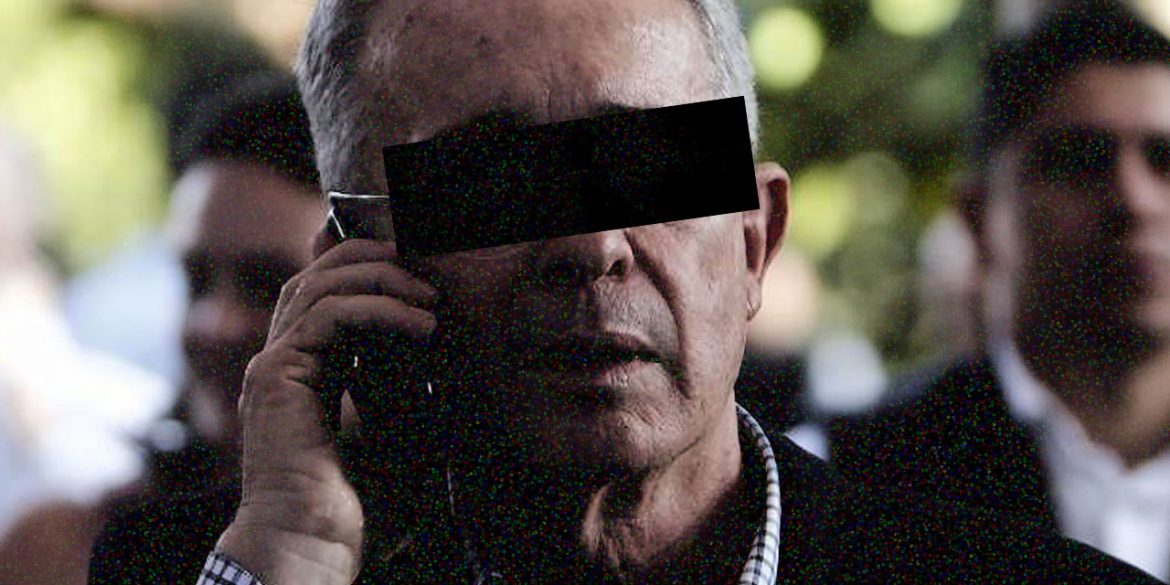
Uribe and his ‘political party’ have never won a presidential election in Colombia without narco support
by Adriaan Alsema March 11, 2020
Colombia’s former President Alvaro Uribe and his party have never won a presidential election without the admitted help of drug traffickers.
Uribe’s Democratic Center party is currently in trouble for allegedly receiving narco support to rig the 2018 elections, but this seemed only a matter of time; the former Medellin Cartel associate and his clan have never won a presidential election without the help of narcos.
President Ivan Duque‘s political patron isn’t the only one though. Colombia has had only two presidents who weren’t elected with the support of narcos since 1994 when the Cali Cartel helped former President Ernesto Samper win the election.
Former President Andres Pastrana‘s 1998 campaign was illegally financed by dredging company Dragacol and former President Juan Manuel Santos‘ 2010 campaign was illegally financed by Brazilian engineering firm Odebrecht and their Colombian partner, banking conglomerate Grupo Aval.
More:
https://colombiareports.com/uribistas-have-never-won-a-presidential-election-without-support-from-colombias-narcos/
Colombia's former chief prosecutor embroiled in narco election rigging scandal
by Adriaan Alsema March 11, 2020
A leading opposition senator announced criminal charges against Colombia’s former chief prosecutor after he got tied up in a growing scandal over narcos’ involvement in rigging the 2018 election.
Robledo said he would file criminal charges against former Prosecutor General Nestor Humberto Martinez for allegedly covering up wiretaps in which a late drug money launderer was coordinating vote-buying for President Ivan Duque.
Former chief prosecutor thrown on growing investigation pile
The leaking of the wiretaps of Duque’s alleged mafia associate Jose Guillermo Hernandez have led to a slew of investigations against Duque, his political patron and former President Alvaro Uribe.
Robledo wants Congress to investigate Martinez for allegedly covering up the mafia involvement in election fraud.

Former President Alvaro Uribe (L) and mafia associate Luis
Guillermo Hernandez. (Image: Instagram)
More:
https://colombiareports.com/colombias-former-chief-prosecutor-embroiled-in-narco-election-rigging-scandal/
Colombia's public enemy #1 are the mafia bosses who wouldn't smuggle a gram of cocaine
by Adriaan Alsema March 5, 2020
Colombia is about as close to a mafia state as it ever has been, which makes catching the bad guys more dangerous than ever.
Organized crime has metastasized to the highest realms of the state system, which means fighting the cancer can get you in jail if you’re lucky and killed if you’re not.
Drug trafficking is for the disposables
If you think Colombia’s mafia is into drug trafficking, you’re decades behind. It may be an industry worth at least $6 billion and may get you your own Netflix series, but it’s only one of the mafia’s many rackets and one only few insiders would touch.
Clever bosses don’t get involved in criminal activity that attracts the attention of US authorities, they stick to rackets that fall under Colombian jurisdiction that is virtually under their control, while playing ball with the DEA.
More:
https://colombiareports.com/colombias-public-enemy-1-are-the-mafia-bosses-who-wouldnt-smuggle-a-gram-of-cocaine/
Bolsonaro Says He Will No Longer Speak to The Press
President said the press should no longer appear every morning at Palácio do Alvorada
Mar.6.2020 1:43PM
President Jair Bolsonaro said on Thursday (5) that he will no longer speak to the press because the press, according to him, "does not disclose the truth".
In his weekly social media broadcast, the president also said that the press should no longer appear every morning at the Palácio do Alvorada.
"Are you tired of seeing the press here saying that I attack the press every day. Suppose you go to work and go to a place, right, and every day you get mugged. What do you do? You take another way; you won't be assaulted, be beaten in the same place. If the press says that I offend you every day, what are you doing there every day (Alvorada)? Until you start spreading the truth, we won't talk to the press anymore, forget it", said.
Bolsonaro also complained about the repercussion of last year's GDP (Gross Domestic Product) result, presented on Wednesday (4) by IBGE, with an increase of 1.1%. The figure is lower than initially projected by the market and consolidated 2019 as the third year in a row of weak growth in the Brazilian economy.
More:
https://www1.folha.uol.com.br/internacional/en/brazil/2020/03/bolsonaro-says-he-will-no-longer-speak-to-the-press.shtml
Duque denies knowing about mafia associate's confessed vote-buying

President Ivan Duque (C) and late crime lord Jose Guillermo Hernandez.
by Adriaan Alsema March 7, 2020
Colombia’s President Ivan Duque on Friday said he did not know that one of his campaigners who confessed to rigging the 2018 elections was a mafia figure.
A leaked wiretap indicates that an investigated money launderer and loan shark from the northern Cesar province was coordinating vote-buying with Duque and the president’s political patron, former President Alvaro Uribe, to secure a victory in the second round.
Duque said he had known Jose Guillermo Hernandez, who was murdered in Brazil in May last year, for four years, but denied knowing he was being investigated for murder and money laundering.
I did not know Jose Hernandez at the time. I met him over the last four years perhaps, on a few public occasions, some social ones surely, but I did not have with him what is called a brotherly relation, as they have tried to insinuate.
President Ivan Duque
More:
https://colombiareports.com/duque-denies-knowing-about-mafia-associates-confessed-vote-buying/
So many photos of Duque with his good friend, José Guillermo `Ñeñe´ Hernández published over the years.


Also with former President, Alvaro Uribe, Duque's mentor.




He who laughs last laughs best. R.I.P.
Duque 'raping and sodomizing' Colombia's democracy
by Adriaan Alsema March 7, 2020
Calls for President Ivan Duque to resign grew louder on Friday as Colombia was bombarded with evidence of the close ties between his party, the security forces and the mafia.
The scandal has stunned Duque and his political patron, former President Alvaro Uribe, who used mafia associates to rig the 2018 election, according to mounting evidence.
Criminal charges and evidence piling up
Criminal charges against the president and his associates continued piling up over their “raping and sodomizing” of Colombia’s democracy.
We have just filed charges against Uribe’s puppet, Ivan Duque, for raping and sodomizing Colombia’s democracy in association with the group of paramilitaries and drug traffickers who accompany him. We hope that the people will wake up and understand that the mafia stole their elections.
Journalist and attorney Daniel Mendoza
More:
https://colombiareports.com/duque-raping-and-sodomizing-colombias-democracy/
WaPo Prints Study That Found Paper Backed an Undemocratic Bolivia Coup
Published on
Friday, March 06, 2020
by Fairness and Accuracy In Reporting (FAIR)
When you have election monitors beholden to the US government, and a corporate media willing to cover for them, it is only duly elected officials in poor countries that need fear those kinds of consequences—and much worse.
by Joe Emersberger
President Evo Morales won re-election in Bolivia’s presidential election last October 20, as pre-election polls predicted. He received 47% of the vote in an election with 88% turnout. He beat his nearest rival by just over 10 percentage points, which meant a second round was not required.
But the day after the election, the Organization of American states (OAS), whom Morales had allowed to monitor the election, put out a press release claiming there had been a “drastic and hard-to-explain change in the trend of the preliminary results.” It was an obviously false claim (FAIR.org, 12/19/19).
Even though the Washington, DC-based Center for Economic and Policy Research (CEPR) immediately put out a statement (10/22/19) pointing out the basic flaw in the OAS’s analysis—it overlooks that precincts that report early can be different from ones that report late—the OAS continued to claim that the change in trend was evidence of fraud. CEPR persisted in exposing the OAS deception—for example, in a paper the think tank published on November 8 and an op-ed in MarketWatch (11/19/19) by CEPR co-founder Mark Weisbrot. On December 12, at a permanent council meeting, the OAS—which gets 60% of its funding from the US government—refused to allow Jake Johnston to present CEPR’s preliminary response to the OAS’s final report on the election.
In the meantime, the OAS’s disparagement of the election ignited violent protests that (combined with the treasonous behavior of Bolivia’s military and police) forced Morales to flee Bolivia on November 10 to avoid being lynched. Bolivia’s security forces “suggested” Morales resign, allowing him to be run out of the country (with his house ransacked), but then sprung murderously into action to consolidate the coup. Within two weeks, 32 people were killed protesting against the dictatorship that took over after he fled. The dictatorship openly says it will arrest Morales if he returns to Bolivia.
More:
https://www.commondreams.org/views/2020/03/06/wapo-prints-study-found-paper-backed-undemocratic-bolivia-coup
WORLD'S LARGEST MEAT COMPANY TO DEBUT NEW VEGAN MEAT LINE IN US
New vegan meat brand OZO will debut burgers, grounds, and Italian-style meatballs at retailers nationwide.
by ANNA STAROSTINETSKAYA
MARCH 4, 2020
Starting in April, new brand OZO will debut a variety of plant-based meat products at retailers across the United States. The brand is owned by Planterra Foods—a US-based subsidiary of Brazil’s JBS SA, the world’s largest meat company—and will launch with burgers, grounds (in plain and Mexican-seasoned flavors), and Italian-style meatballs, all made with a blend of pea and rice protein that is fermented with the help of shiitake mushrooms. The product line will be priced between $5.99 to $7.99 and packaged in recyclable containers. “We recognize there are other protein offerings out there, which is why we’re adamant on having strong points of difference in our products,” Planterra Foods CEO Darcey Macken said. “This category needs better tasting food from real ingredients that appeals to the whole family, and we’re confident that OZO products deliver.” To promote the launch, OZO will embark on a nationwide tour starting this spring and through December, with the aim of giving 750,000 customers a taste of the new vegan meat line.
In Brazil, JBS launched the plant-based Incrível (Incredible) Burger under its Seara Alimentos brand last year and opened the Incredible Lab, its plant-based innovation hub, in January. This year, the company will launch five new ready-to-eat products in its plant-based portfolio across Brazil, which include vegan beef and chicken burgers, a breaded chicken snack, beef kibe, and flavored beef. JBS is not the only meat company in Brazil tapping into the global plant-based movement. Last year, Burger King began testing the Rebel Whopper at 58 outlets across Brazil’s capital, São Paulo, made with a plant-based patty supplied by Marfrig Global Foods SA—the world’s largest producer of animal-based hamburgers.
https://vegnews.com/2020/3/world-s-largest-meat-company-to-debut-new-vegan-meat-line-in-us
(Short article, no more at link.)
Who knew the vile Brazilian Batista brothers would be behind this product?
https://abrothersmob.com/usa-tv-fulminates-batista-brothers-due-to-a-us-62-million-given-them-by-trump/
02.07.19 FOOD AND DRUGS FOOD AND FARMING
JBS: The Brazilian butchers who took over the world
If you eat meat, you probably buy products made by one Brazilian company. A company with such power it can openly admit to having bribed more than 1,000 politicians and continue to grow despite scandal after scandal. And you’ve probably never heard of it.
Meat is now the new commodity, controlled by just a handful of gigantic firms which together wield unprecedented control over global food production. The Bureau has been investigating the biggest of all: JBS, a Brazilian company which slaughters a staggering 13 million animals every single day and has annual revenue of $50bn.
When it comes to scandals, you can take your pick — during its rapid rise to become the world’s biggest meatpacker, JBS and its network of subsidiaries have been linked to allegations of high-level corruption, modern-day “slave labour” practices, illegal deforestation, animal welfare violations and major hygiene breaches. In 2017 its holding company agreed to pay one of the biggest fines in global corporate history — $3.2bn — after admitting bribing hundreds of politicians. Yet the company’s products remain on supermarket shelves across the world, and its global dominance only looks set to grow further.
In a two-part investigation published today, the Bureau revealed in partnership with the Guardian and Repórter Brasil that Amazon deforestation and dirty meat are very much part of how JBS has done business. Today we lift the lid on the company itself, and ask: what is the true cost of cheap meat?
More:
https://www.thebureauinvestigates.com/stories/2019-07-02/jbs-brazilian-butchers-took-over-the-world
Unbelievable!
Guatemala to Begin Evidentiary Phase of Genocide Trial Against Senior Military Officials
6 MAR 2020 | COMMENTARY
By Jo-Marie Burt and Paulo Estrada
On Monday, March 9, the Guatemalan Attorney General’s Office will present its case against three senior military commanders who last November were charged with genocide, crimes against humanity, and forced disappearance against the Maya Ixil population during the government of General Fernando Romeo Lucas García (1978-1982). The 2013 genocide trial, which resulted in a conviction that was later vacated, focused on the army’s actions during the subsequent government of General Efraín Ríos Montt (1982-1983).
The alleged crimes in this case include the massacre deaths of 1,128 people, another 540 selective killings, 81 cases of forced disappearance, and 36 cases of sexual violence against women and girls. The crimes occurred during the Lucas García government, under which prosecutors allege the Guatemalan army first designed and implemented a policy of genocide.
. . .
According to prosecutors, the accused officials are responsible for planning and carrying out the Guatemalan army’s counter-insurgency strategy in the Ixil region, after having determined that the Ixil region was enemy territory. Prosecutors allege that scorched-earth policies resulted in massacres and other grave crimes against the Maya Ixil population and that the army designed the policies eliminate the civilian population. The prosecution evidence includes witness testimony, expert witness testimony, official documents, and forensic evidence.
. . .
“There was no genocide in Guatemala,” Lucas García proclaimed. “I don’t know why they call me a genocidaire, I love the indigenous race.”
More:
https://www.wola.org/analysis/guatemala-genocide-trial-begins-senior-military-officials/

Flying above indigenous citizens provided a superior view for Benedicto Lucas Garcia.
Gave him a far better good long squint at the indigenous Guatemalans he insisted he loved so much.
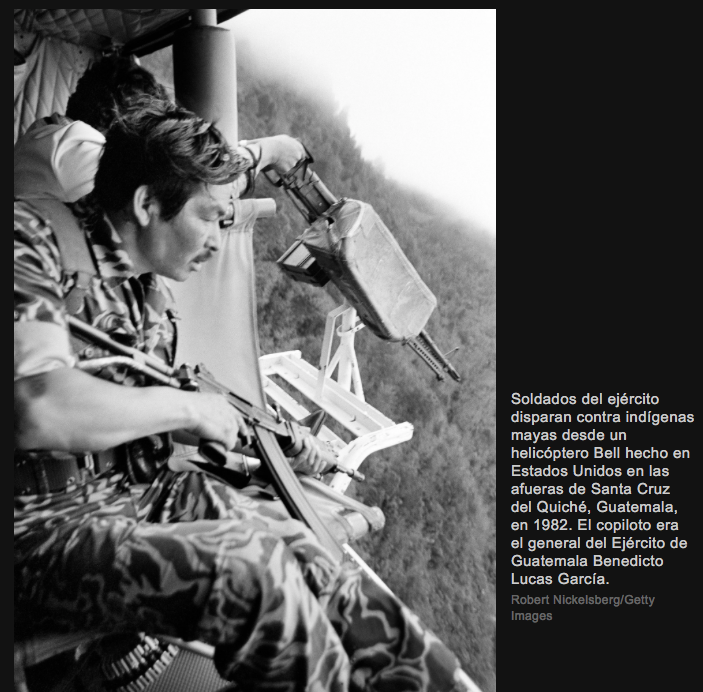
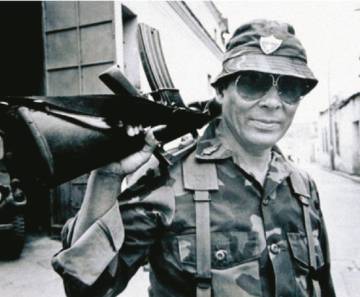

Remembering the Heroism of Activist Berta Cceres Four Years After Her Assassination: an Interview W
MARCH 2, 2020
Remembering the Heroism of Activist Berta Cáceres Four Years After Her Assassination: an Interview With Her Daughter
by VIJAY PRASHAD
On July 15, 2013, the Civic Council of Popular and Indigenous Organizations of Honduras (COPINH), led by Berta Cáceres Flores, went to protest the construction of a hydroelectric dam on the Gualcarque River. This river, in western Honduras, is considered to be sacred by the indigenous Lenca community. No one from the company that wanted to build the dam had talked to the Lenca. The company—Desarrollos Energéticos Sociedad Anónima (DESA)—was owned and controlled by one of the most powerful families in Honduras, the Atala Zablahs. The Honduran Army, at the behest of DESA, guarded the site. The soldiers opened fire at the protesters and killed Tomás García.
Three years later, on March 2, 2016, gunmen broke into the home of Berta Cáceres and assassinated her. These men, and some of their immediate handlers, have been sentenced to prison terms that will run from 30 years to 50 years. Evidence presented in the court—including phone logs and WhatsApp conversations—shows quite conclusively that these assassins, many veterans of the Honduran army, acted on the orders of the executives of DESA. None of the owners of DESA, many of whom were on these WhatsApp chats, have been charged with the crime.
Now, four years after the assassination of Berta Cáceres, I spoke to her daughter Bertha Zúñiga Cáceres, the general coordinator of COPINH. It is important to mention that when Zúñiga Cáceres returned from her studies in Mexico City to take up the mantle of COPINH, she herself faced an attempt on her life on June 30, 2017. The assassination of Berta Cáceres came alongside the March 15, 2016, murder of Nelson Noé García of COPINH, and the October 18, 2016, murders of José Ángel Flores and Silmer Dionisio George of the Movimiento Unificado Campesino del Aguán (Unified Campesino Movement of the Aguán, or MUCA). It is now well-known that Honduras has amongst the highest murder rates in the world; but that is not why these people are killed—they are killed for what they stand for, and whom they stand against.
Collusion
Zúñiga Cáceres tells me that the past four years have been “very challenging for us” because she and her colleagues at COPINH have had to struggle to make sure that the “process is not silenced.” It is true that the Honduran investigators, under immense international pressure, arrested the main shooters and some of their immediate handlers. These handlers include Douglas Bustillo, a former head of security at DESA who ran the operation; Sergio Rodríguez, an executive at DESA; and Roberto David Castillo Mejía, the president of DESA. None of the “intellectual authors” of the crime have, however, been arrested; these “intellectual authors” would include the owners of DESA and members of the government.
More:
https://www.counterpunch.org/2020/03/02/remembering-the-heroism-of-activist-berta-caceres-four-years-after-her-assassination-an-interview-with-her-daughter/
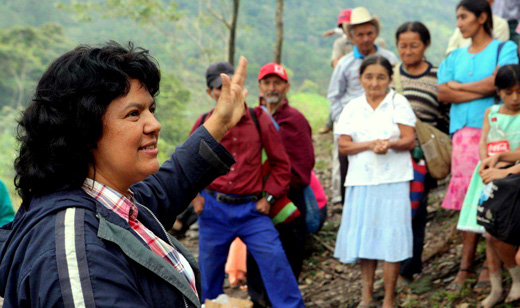
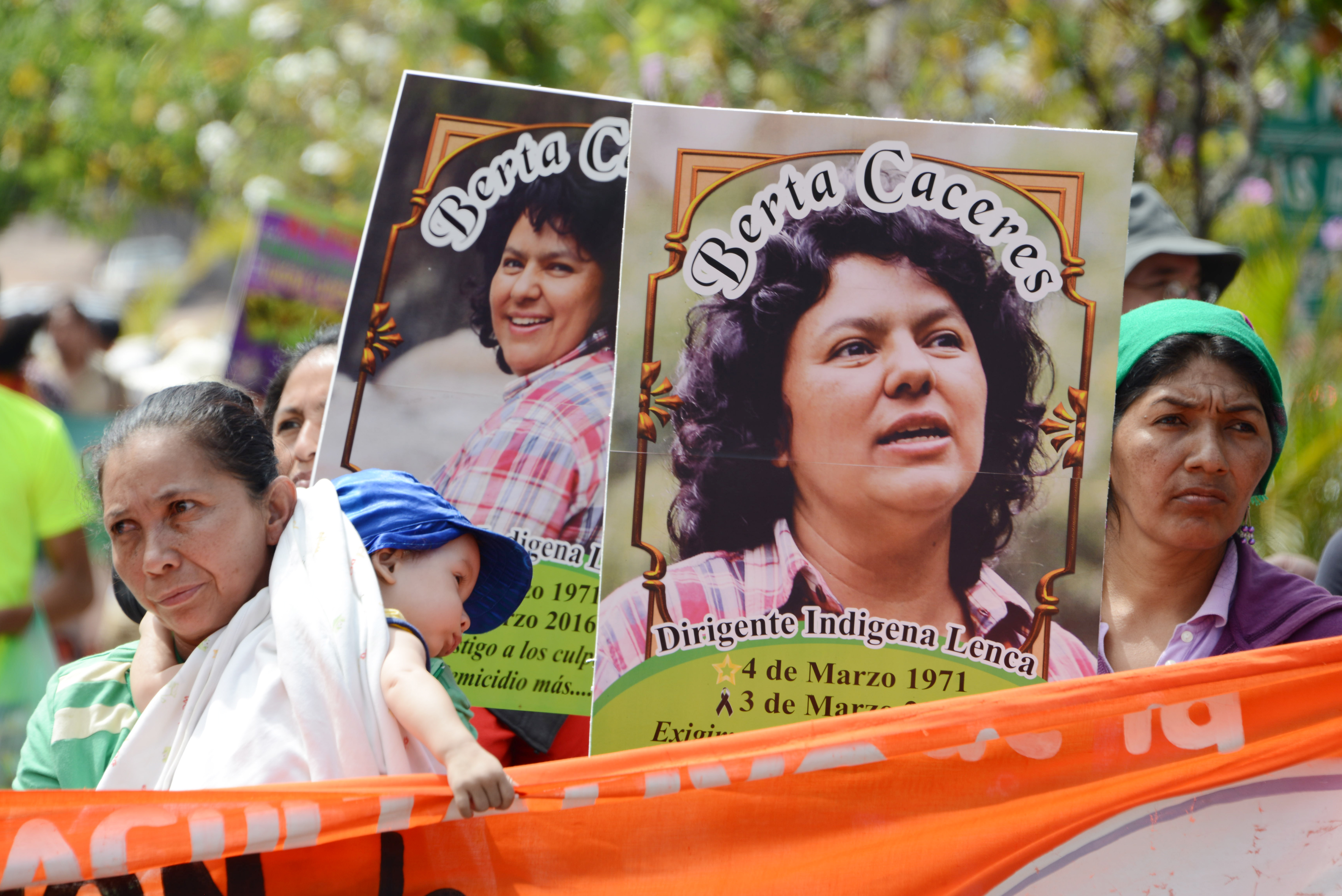
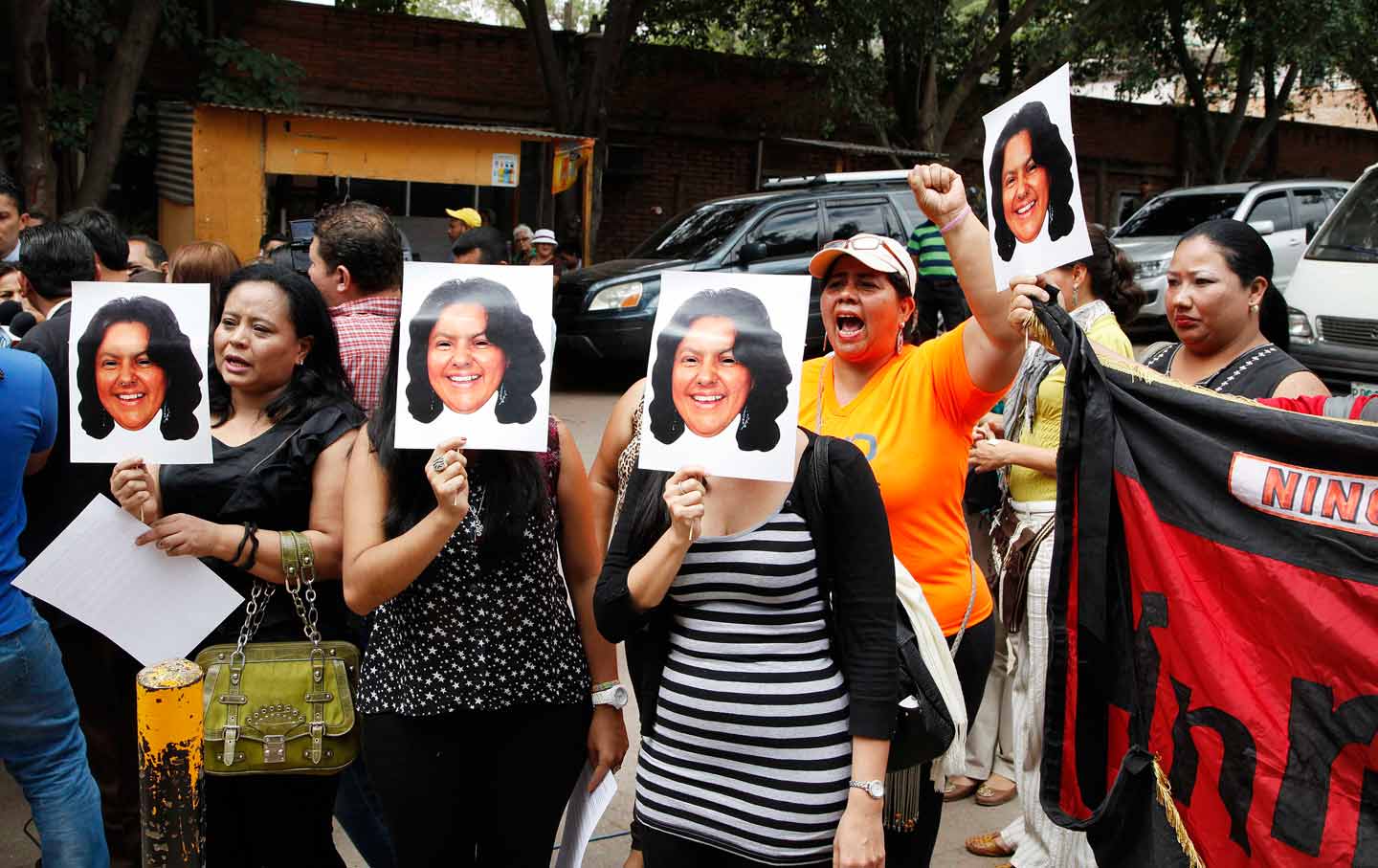

Profile Information
Member since: 2002Number of posts: 160,515